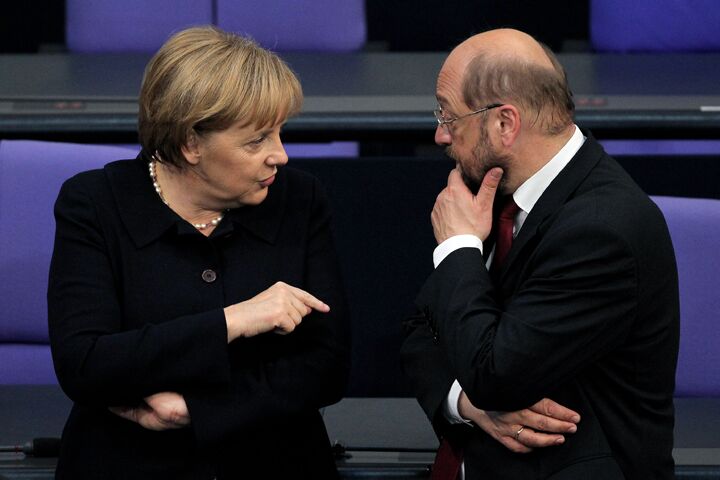
The Germans Behind the Scenes of the EU
A growing number of Germans are controlling the European Union from behind the scenes, Laurence Norman wrote in the Wall Street Journal August 1.
Few German leaders hold high-profile jobs in the EU, “Yet EU watchers say this first-glance view of German officials on the sidelines is misleading,” writes Norman.
“In addition to the German government pushing its interests more aggressively in private than it does in public, observers note a growing ring of key Brussels players from the EU’s largest member state,” he writes.
Last month, for example, former financial policy adviser to German Chancellor Angela Merkel, Uwe Corsepius, was appointed secretary general of the European Council. The man he replaced, Pierre de Boissieu, was “considered one of the most powerful people in Brussels, partly because of his long years of experience in the European capital and his close ties to French presidents,” writes Norman.
He continues:
But the post itself is also a powerful and influential one. As secretary general of the European Council, which represents the interests of member states, Mr. Corsepius would likely have access to almost any meeting that President Herman Van Rompuy holds, as well as the key EU and eurozone summits. He is in charge of drawing up the agenda for Council meetings and plays a key role in picking personnel. When Mr. Van Rompuy reports in October on how to improve EU crisis management, Mr. Corsepius, who holds a PhD in economics, will likely have his fingerprints somewhere on the recommendations.
Corespius is not alone. Johannes Laitenberger is head of European Commission President José Manuel Barroso’s cabinet. Martin Schulz is expected to become president of the European Parliament toward the end of this year. Jürgen Stark is the chief economist at the European Central Bank (ecb). “Many would consider him the de facto No. 2 once Mario Draghi takes over as ecb president on November 1, even though Vítor Constâncio holds the vice president spot,” writes Norman.
Germany also controls what is emerging as one of the most important Europe institutions—the European Financial Security Facility (efsf). As Stratfor writes, “Unlike previous EU institutions (which the Germans strongly influence), the efsf takes its orders from the Germans. The mechanism is not enshrined in EU treaties; it is instead a private bank, the director of which is German.”
This means that a nation must meet Germany’s terms and conditions before receiving any financial help from the EU. “In order to get the money, distressed states merely have to do whatever Germany—the manager of the fund—wants,” Stratfor writes. “The decision-making occurs within the fund, not at the EU institutional level.”
Norman concludes that “diplomats say that the high-ranking Germans aren’t just pushing Berlin’s interests.” But the euro crisis proves that it is Germany that is calling the shots in Europe.
